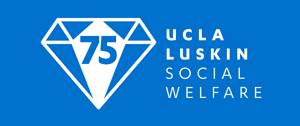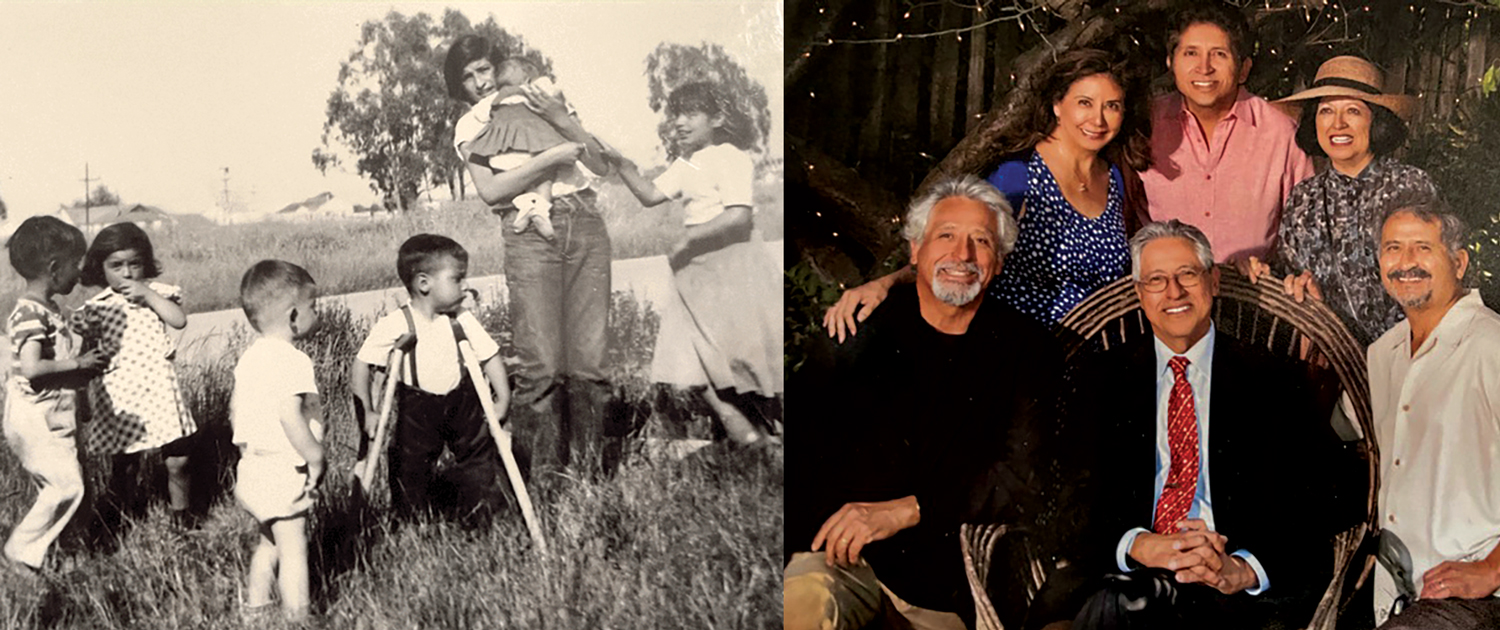Fernando Torres-Gil, a Lifetime of Service and Resiliency As an educator and public official, the UCLA Luskin professor has spent four decades 'finding a silver lining' amid life’s misfortunes
By Stan Paul
Fernando Torres-Gil has worn many hats — including a stylish white fedora he favors — in a long career as an educator and as a public official dating back to the Carter administration.
 As UCLA Luskin Social Welfare celebrates the 75th anniversary of its founding, Torres-Gil will retire after more than three decades helping to advance the School’s educational mission as a professor of social welfare and public policy. He has served as chair of Social Welfare, associate dean and acting dean, as well as founding director of UCLA’s Center for Policy Research on Aging.
As UCLA Luskin Social Welfare celebrates the 75th anniversary of its founding, Torres-Gil will retire after more than three decades helping to advance the School’s educational mission as a professor of social welfare and public policy. He has served as chair of Social Welfare, associate dean and acting dean, as well as founding director of UCLA’s Center for Policy Research on Aging.
Comparing his early years to the tale of “Forrest Gump,” Torres-Gil said the travails of his “personal circumstances created unexpected opportunities for higher education.”
His mother, Maria, made education “the first, second and third priority,” Torres-Gil said. “Growing up in Salinas, California, as the second of nine siblings to Mexican farmworkers and an extended immigrant family from Mexico created the likelihood that none of us would go beyond farmwork,” he said. “Factory jobs, at best.”
And yet, Torres-Gil, his siblings — and later their children — would gain admission to Brandeis University, UCLA and five other University of California campuses, Pomona College, Cal Poly Pomona, San Jose State, USC and Occidental.

Family photos show Torres-Gil with siblings as a child and adult.
His mother became an expert at navigating community services. She fought fiercely to avoid foster care and to keep her family intact despite poverty and the “drama and challenges of her circumstances,” which included Fernando contracting polio at six months and becoming unable to walk.
“To our everlasting gratitude, … after many years of surgical interventions and rehabilitation, I acquired a modicum of mobility,” Torres-Gil said. “This led to key milestones that informed my academic journey.”
In the 1950s and 1960s, higher education was rarely an option for the children of working-class families from Mexico. Most young Latinos from public housing projects like him ended up in the military, fighting in the Vietnam War. But Torres-Gil’s disability put him on a different course — community college, then San Jose State, where he excelled academically and was active in the Chicano movement.
Torres-Gil had few role models at the time for the next step — graduate school. “We knew of no Chicanos/Latinos from our region that had ventured afar for graduate education,” he recalled.
He wound up studying social policy and management at Brandeis University near Boston because he could continue working with the United Farm Workers there to promote a lettuce and grape boycott in New England. He went on to earn master’s and doctorate degrees from Brandeis.
Torres-Gil chose the emerging fields of gerontology and geriatrics as his emphasis after attending the 1971 White House Conference on Aging. He remembers skeptical Chicano friends in Boston questioning his choice to work with old people, calling it “depressing” and asking how he would find a job. Fifty years later, he said, they “are all elders and deeply interested in all things about aging.”
His circle of contacts expanded to include the Jewish, Irish, Italian and Portuguese communities in New England, and those connections later led to high-level policy and governmental positions. He earned his first presidential appointment in 1978 when President Jimmy Carter appointed him to the Federal Council on Aging. Over the next few decades, he held staff positions or advisory roles during the administrations of Bill Clinton and Barack Obama.
As a scholar at both USC and UCLA, his mantra has been to prove himself as an “independent scholar with original ideas” respected by peers.
Torres-Gil’s research has focused on the politics of aging, health care and long-term care reform, and disability policy. He has continued to provide expertise on aging to elected officials about the intricacies of Social Security, Medicare, Medicaid and the Older Americans Act.
“This has given me a most satisfactory career as a scholar, public servant and policy entrepreneur,” said Torres-Gil, who was recently elected as a fellow of the American Academy of Social Work and Social Welfare.
During retirement, he plans to continue being an advocate for older adults, the disabled and the homeless, although mostly at the local level.
He also wants to continue teaching part time, offering the type of advice to students that has exemplified his own life — to view difficult situations as learning opportunities.
“Never let misfortune keep you from achieving greater resiliency and … finding a silver lining,” Torres-Gil said. “For any bad breaks I may have had, I’ve had a lot of silver linings.”
